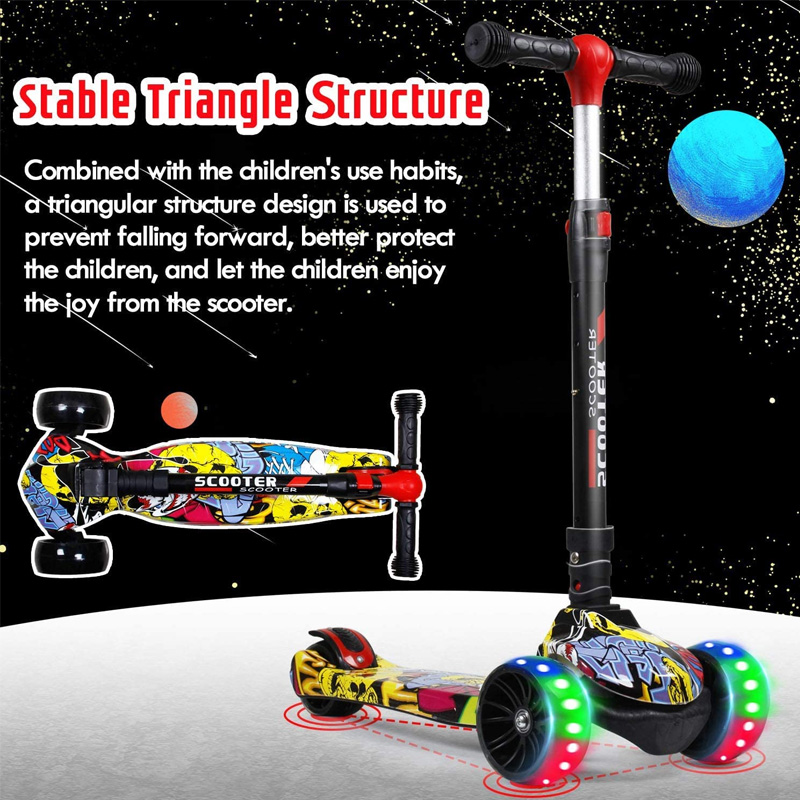The Growing Debate around the Legality of Electric Scooters for Kids
In recent years, electric scooters have surged in popularity, especially among children. They offer a fun and convenient mode of transportation, encouraging outdoor activity while providing an alternative to traditional bicycles. However, alongside their rise in popularity, concerns about safety and legality have come to the forefront. The discussion surrounding the legality of electric scooters for kids, particularly brands like Lehuo, has drawn attention from parents, lawmakers, and safety advocates alike.
The Growing Debate around the Legality of Electric Scooters for Kids
This raises an important question Should there be age restrictions or specific legal guidelines governing the use of electric scooters for minors? Several countries and states have introduced laws that specify the age limit for riding electric scooters; for instance, some locales require riders to be at least 14 years old. The rationale is straightforward by setting an age limit, lawmakers aim to minimize the risk of accidents resulting from inexperienced young riders.
lehuo electric scooter for kids illegal

Moreover, the legality of electric scooters can vary significantly depending on the jurisdiction. In many places, electric scooters are considered a form of personal mobility device and therefore fall under the same regulations as bicycles. However, in some regions, they may be classified as motor vehicles, subjecting them to registration, licensing, and insurance requirements. These inconsistencies can lead to confusion for parents who may not be aware of the legal implications of allowing their children to ride electric scooters like Lehuo.
Additionally, the manufacturers of electric scooters play a crucial role in this discussion. Brands like Lehuo are responsible for ensuring that their products meet safety standards and are suitable for children. This includes providing adequate safety features, such as speed limiters, sturdy construction, and proper braking systems. Parents should pay close attention to these features when considering purchasing an electric scooter for their child. Furthermore, manufacturers should provide detailed instructions and guidelines on the safe use of their products to educate parents and children alike.
While the debate continues, it is essential for parents to prioritize safety and legality when deciding whether to allow their children to ride electric scooters. Educating kids about responsible scooter use, such as wearing helmets, obeying traffic signals, and being aware of their surroundings, is paramount. Additionally, parents should regularly supervise their children while using scooters, ensuring they understand and practice safe riding behavior.
In conclusion, the emerging trend of electric scooters for kids brings both exciting opportunities and serious concerns. As we navigate this evolving landscape, it is important to focus on safety measures, legal regulations, and informed decision-making. The responsibility lies not only with parents and guardians but also with manufacturers and lawmakers to create an environment where children can enjoy the thrill of riding electric scooters without compromising their safety. With thoughtful consideration and proactive measures, we can create a safer future for young riders, allowing them to enjoy the benefits of electric scooters while minimizing the risks involved.
-

 Scoot&RideKids Child Kick Push Scooter 3 Wheels with LED Flashing Tilt Lean Boys Girls Scooter
Scoot&RideKids Child Kick Push Scooter 3 Wheels with LED Flashing Tilt Lean Boys Girls Scooter




- 4
$33.17 -

 Scoot&RideKids Scooter Child Kick Flashing LED Light Up 3 Wheel Push Adjustable Folding 3
Scoot&RideKids Scooter Child Kick Flashing LED Light Up 3 Wheel Push Adjustable Folding 3- 0
$25.52 -

 Scoot&RideKids Scooter Child Kick Flashing LED Light Up 3 Wheel Push Adjustable Folding 2
Scoot&RideKids Scooter Child Kick Flashing LED Light Up 3 Wheel Push Adjustable Folding 2- 0
$33.17 -

 Scoot&RideKids Scooter Teens Foldable Kick Push Scooter Adjustable Height Safe 2 Wheels
Scoot&RideKids Scooter Teens Foldable Kick Push Scooter Adjustable Height Safe 2 Wheels




- 4
$49.99
Meet our partners and discover what powers their creativity!
When you register for a Lohas scooter, you will receive a 10% discount on your first order and can be notified of sales, new product launches and other offers in advance.









